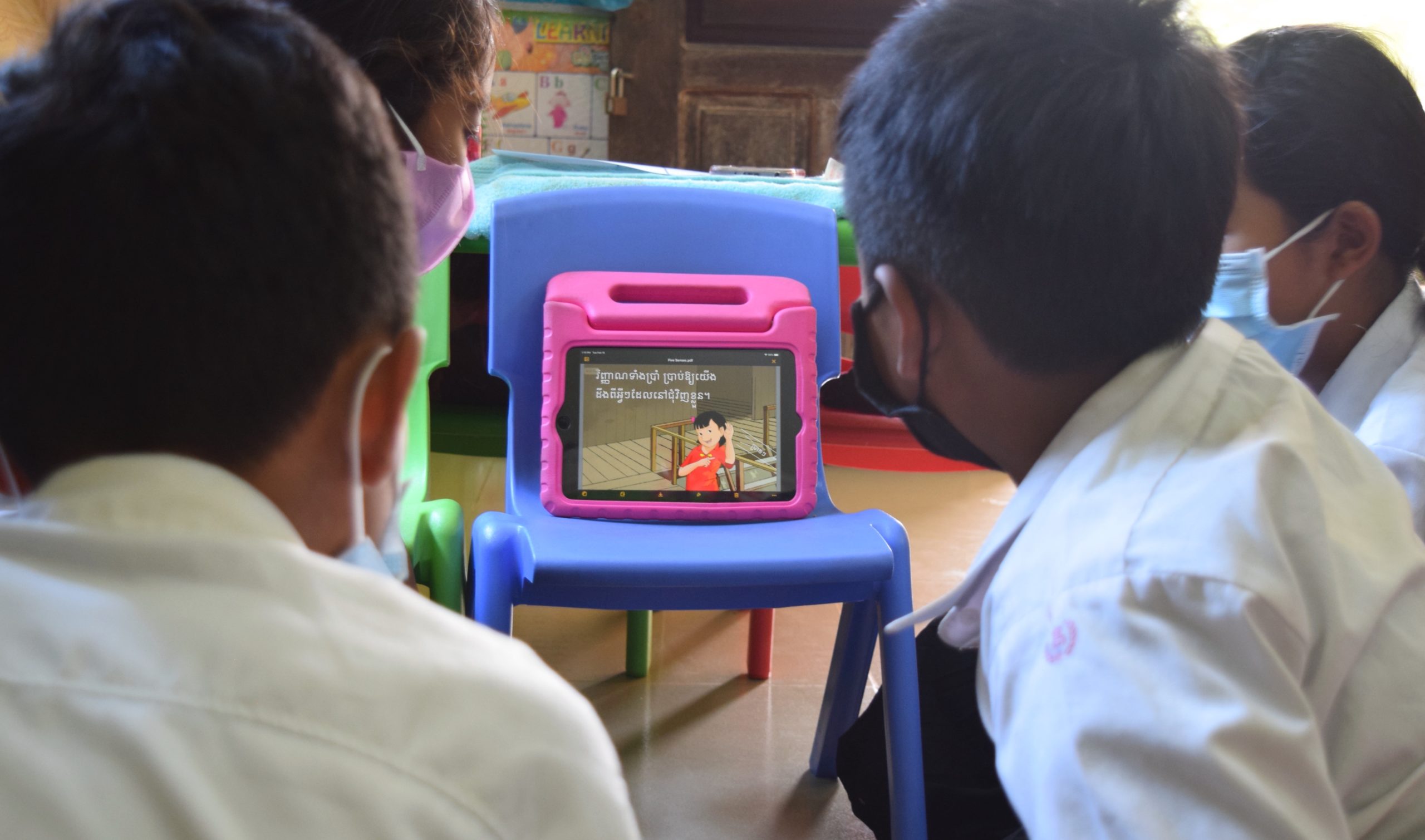Technology
Technology opens so many doors in Cambodia. Not only does the job market increasingly demand computer skills in a country where the majority of students haven’t touched a computer before they graduate high school, but, more than that, technology opens the world of information for students.
Understanding not just how to use technology but how to leverage it to continually access new information and gain new skills leads students to an entirely different future. STEM education encourages curiosity from primary school onward to always be asking “how” and “why”; that pattern of thinking gives students a true competitive edge coming out of an education system built largely on learning by rote.
That’s why our technology program teaches critical thinking and creates space for self-directed learning. Students who engage in PLF technology classes are learning the curriculum at their own pace, with teachers on hand to help the students when they are stuck.
PLF’s first computer lab was installed at Tchey Primary School in 2009, and we now support 5 labs (3 of which are solar-powered!). All of our secondary school students have the opportunity to enroll and learn critical technology skills before their high school graduation. Whether a student chooses to enter the workforce or to continue on to university, these computer skills are vital for their success.
PLF began introducing technology to younger students through LEGO Robotics classes and by introducing e-readers into the libraries. We know our technology program is working because 70% of our university scholarship students choose to study STEM subjects!


In 2022, we piloted a new Explore class aimed at launching middle schoolers into the world of computers, knowing that the earlier students get to grips with digital literacy, the quicker a headstart they gain on incorporating these essential skills into their studies in the higher grades. It was quite an adventure for this small group of Grade 7 students, who navigated their way around completely new digital landscapes, while simultaneously acquiring essential life skills and tools for independent and self-directed learning. The pilot was a huge success, with these young explorers’ engagement and confidence levels skyrocketing. The next step is to roll it out to larger classes in the next school year, while also developing Explore level II.
Technology also played a huge part in our Covid-19 response strategy, with the rollout of an eLearning Program already in development as the pandemic hit. This enabled us to reach and support rural students during the prolonged school closures. With few online resources provided by government schools, our eLearning study groups – coordinated by older PLF students and university mentors – were a lifeline to keep students as up-to-date as possible on their classes. Formulated and delivered in the eye of the storm, we continue to offer this program post-pandemic to middle and high school students, bolstering their studies and keeping them on track in the core curriculum subjects.
